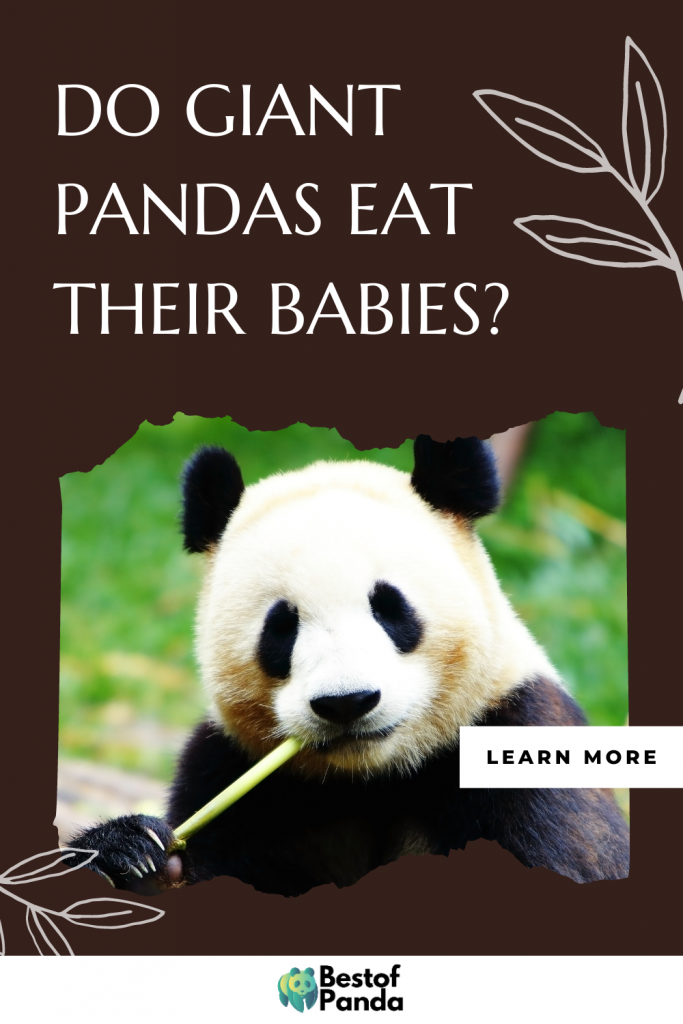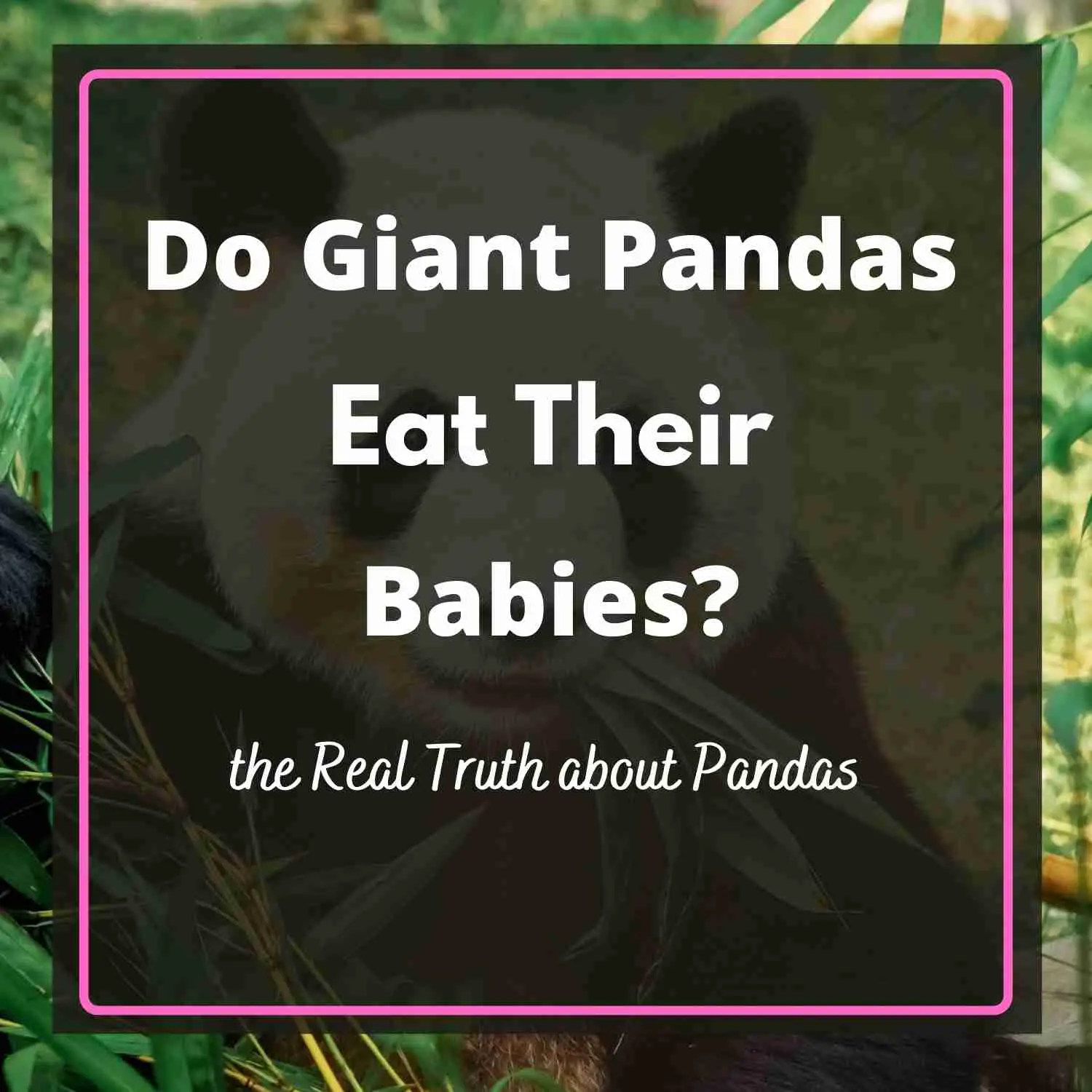The journey of studying about pandas is quite exciting – and thrilling too. Sometimes, we get the usual questions like what do giant pandas eat, where do they live, and how they behave. But surprisingly, we might get questions like, “do giant pandas eat their babies?”
A startling question to ask – but provided that they are carnivorous, we need to find answers to the most unexpected questions too. If someone says, they do. It’s merely an accusation!
Like all the mothers in the world, the giant pandas are equally affectionate and loving towards their children. In fact, they take care of their babies more than any other animal.
The article will unfold a lot of facts that led to these false assumptions about giant pandas killing or eating their babies. The only explanation that they are carnivorous is not sufficient to support the idea of giant pandas eating their babies. There must be a lot more to it; let’s discuss it.
Do giant pandas eat their babies?
To answer in a one-liner, I would say: No giant pandas do not eat their babies. Instead they are very considerate and compassionate about their cubs and take very good care of them. The newborn baby pandas are very small, blind, and hairless. Hence, they totally rely upon their mothers for food and shelter.
Because of them being very tiny and helpless in size, they often get crushed by their panda mothers, who are almost 400 times heavier than their babies. However, it’s totally unintentional. You can not say that the mothers deliberately do so.
The reason for them being so small and tiny is that despite being carnivorous, the panda mothers feed on bamboo. It doesn’t fulfill their nutritional deficiencies but instead makes it more weak. Hence, they give birth to very small and feeble pandas.
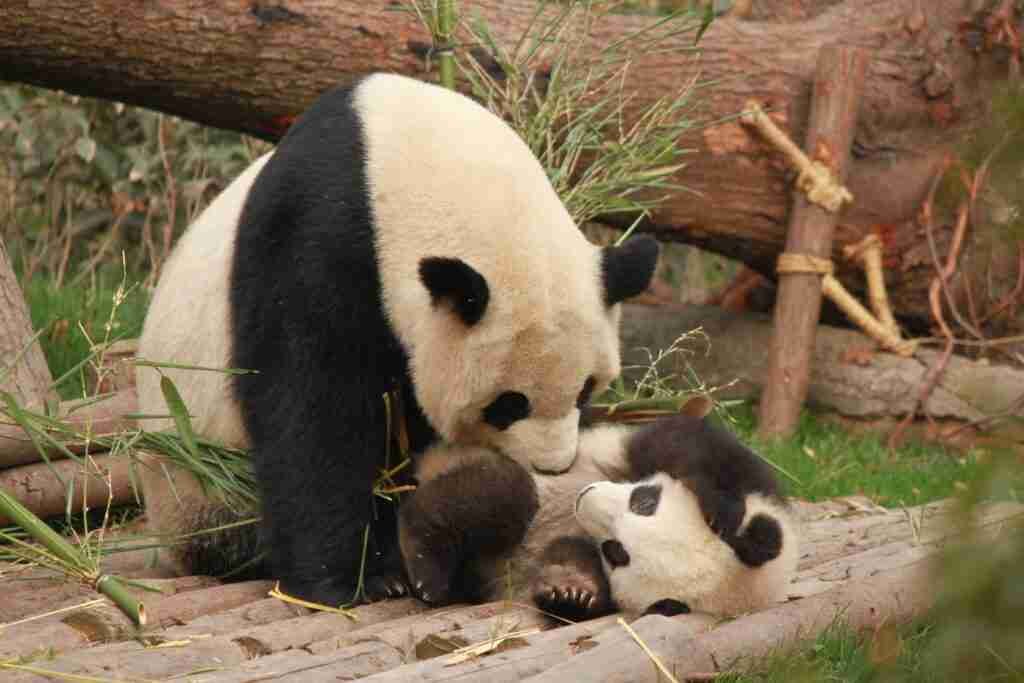
If we consider a giant panda’s lifestyle after giving birth to a newborn panda, we find out some really interesting things. They generally tend to feed their babies on their own and never take them out of their sight.
Moreover, a panda bear that switched from a carnivorous lifestyle out of fear of fighting and killing would never think of killing its own babies. So, a clear “no” is the most appropriate answer to do giant pandas eat their babies.
Do giant pandas eat their babies’ poop?
Giant pandas do not eat their babies. They eat and poop at the same time – but do not eat poop!
According to studies, giant pandas tend to poop almost 40 times a day. The reason behind this is that they eat a substantial amount of bamboo all day, but their metabolic systems are meant for digesting meat – not Bamboo!
The gut is unable to metabolize and assimilate food excretes it to avoid overstuffing. However, no matter how much bamboo they eat, that’s not sufficient to meet their nutritional requirements.
Sometimes it so happens that they eat and poop simultaneously. It is because they are hungry most of the time, so they keep eating. However, being unable to digest it, they just poop to feel better. Now obviously, this makes sense.
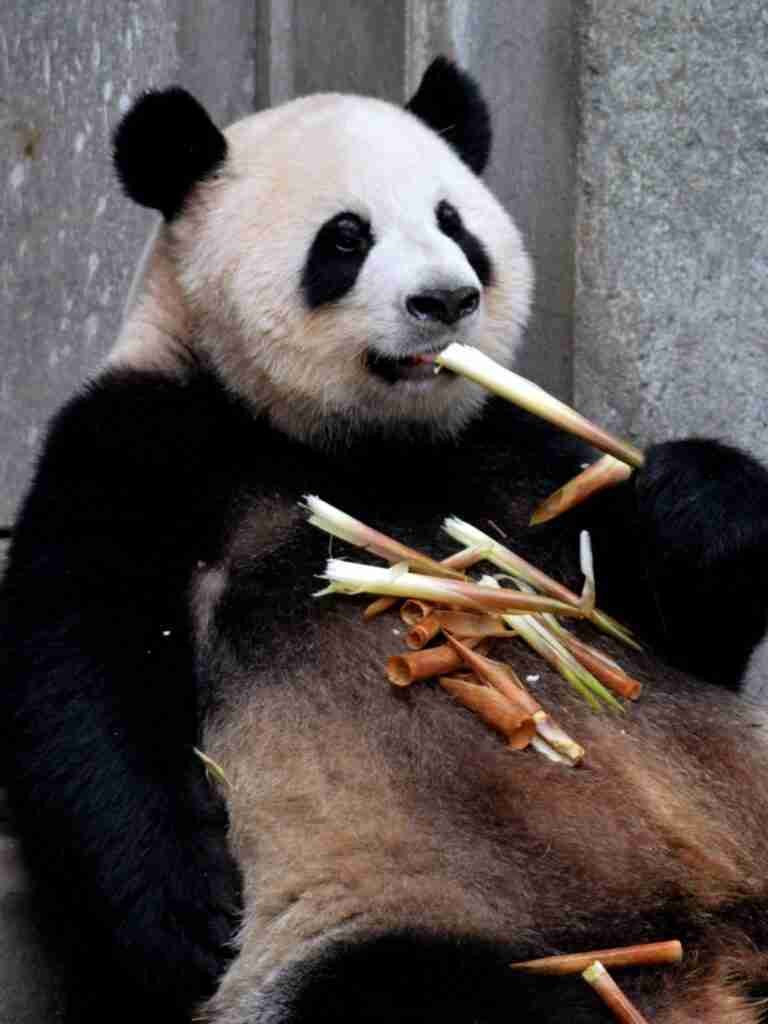
Thus, asking questions like do giant pandas eat their babies – or their babies’ poop is a bit harsh. They mostly eat bamboo, and those who are put in captivity are so less demanding that they literally eat fruits, vegetables, and everything that’s sweet. Isn’t it cute?
Why do giant pandas eat their babies?
Giant pandas do not eat their babies – but feed them very affectionately. As we talked about it earlier, the panda cubs are so small and frail that they depend on their mothers for literally everything. The giant panda mothers feed their young ones with milk.
It might be quite surprising and compassionate to know that the panda mothers usually go on starving for weeks. So, researches suggest that while the cubs gain weight and size, the giant panda mothers are actually starving to save the maximum for their newborns.
Since the giant pandas are carnivorous and need something to fulfill their nutritional deficiencies – the food doesn’t essentially have to be their own baby! In the forest, they might hunt small animals like pikas and rodents.
So, neither do giant pandas kill their babies nor eat them!
Why do mother pandas bite their babies?
Many people might come across pictures of giant pandas biting or holding their babies in canines – and might assume that they actually bite or kill. But that’s totally not true! That’s just a protective mechanism.
Let’s learn how!
The giant panda mothers are very tender and caring towards their cubs. However, if they sense danger or when a predator tries to attack, it’s an innate response in a panda mother that it will protect its baby. The protection usually involves biting – or rather holding its baby firmly in her powerful jaws.
The panda teeth might indeed break bones as they are made for it – but the mother holds its baby very gently and may climb trees if need be. Therefore, do giant pandas eat their babies or bite them – is not in question anymore!
Do pandas kill their babies?
Giant pandas do not kill their babies – but they abandon them, and with a heavy heart, I’m sure! Being carnivorous animals and feeding on bamboo leaves them in a nutrient deficient state. Hence, when they give birth to twin cubs, it gets very difficult for the mothers to feed both of their babies.
Hence, what the giant panda does is takes proper care of one baby and abandon the other. The mother panda neither has enough milk nor energy to feed both of its babies. From her perspective, it’s better to raise one healthy and fully grown panda rather than two weaker ones who cannot contrive enough for themselves.
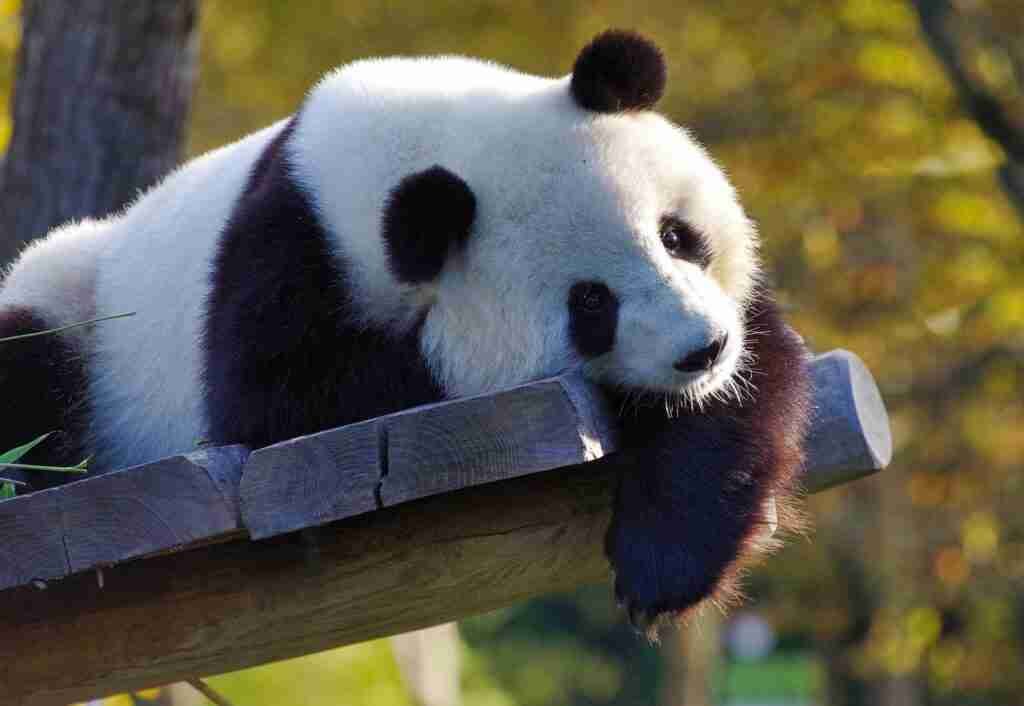
To ensure it’s baby’s survival, she might go on starving for days and even weeks. Thus, it must not be easy for the panda mother to abandon her babies, but that’s what nature demands. It’s pretty much clear that neither do giant pandas eat their babies nor do they kill them intentionally. They only choose what’s right for their survival.
Conclusion
It must have been very scary to read about do giant pandas eat their babies and quite relieving to read the answer in the negative. For quite a lot of people who love the cuddly nature of pandas, it’s a setback to learn that they are carnivorous and might feed on their babies. However, that’s not true.
The giant pandas are quite friendly, loving, and compassionate towards their babies. It’s just their nutritional insufficiencies that compel them to abandon one of their twins out of fear of raising two frail and debilitated panda bears.
Moreover, since the giant pandas have evolved to be eating bamboo and not meat, it’s important that they are stronger in their initial years. Otherwise, they might not survive the hazards of being nutritionally insufficient in their later lives.
Just as the giant pandas have changed their lifestyle to a more lackadaisical one in order to save energies and sustain their lives on bamboo, they have also settled on the idea of raising only one stronger cub.
Below is a Pinterest friendly-photo… so you can pin it to your “Panda” Board!
